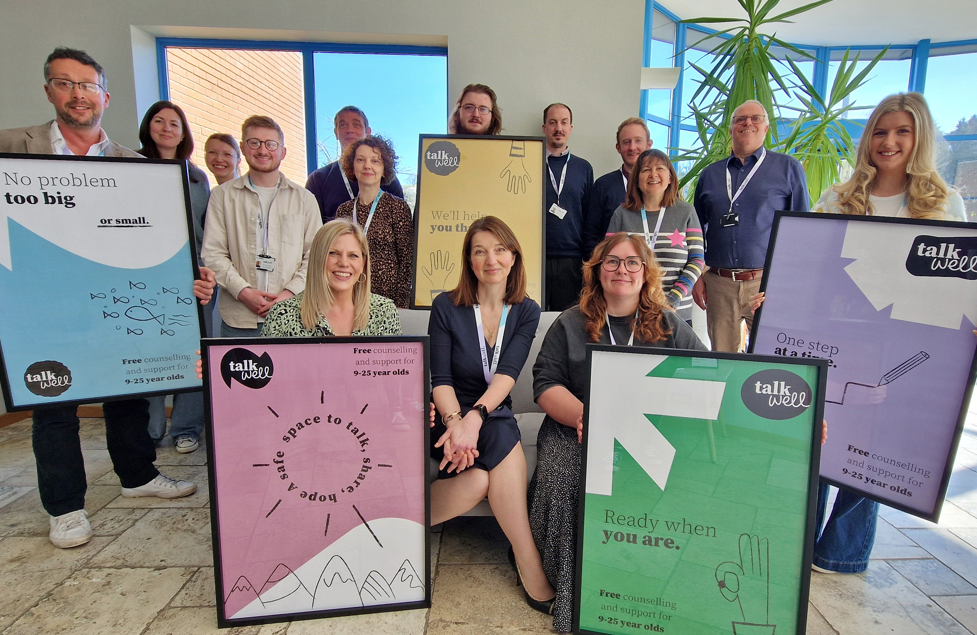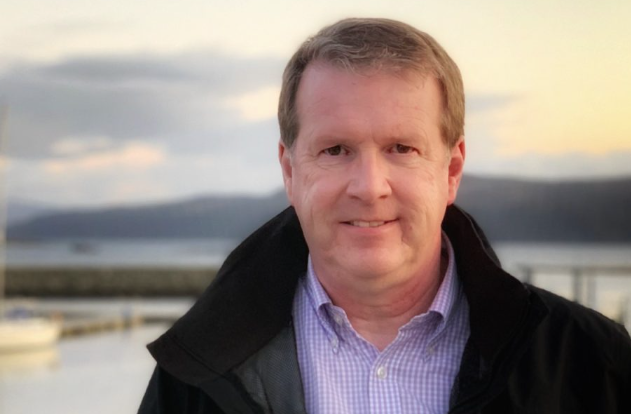Sital Mistry-Lee, associate director of digital inclusion delivery talks through the challenges and next steps of fixing the digital divide and how others can help
It’s 2025, the year we #fixthedigitaldivide... well, probably not yet! But we’re definitely
getting closer. According to the Lloyds Consumer Index, the number of digitally excluded
people in the UK is steadily decreasing. That means more people have the skills they need
to access essential services online, which is a huge win. But here’s the thing: 9 million
people in the UK still can’t do things like book a GP appointment online, video call family,
pay bills, or even apply for jobs. Let that sink in for a second—when was the last time you
filled out a paper job application? For some, that’s still their only option.
But here’s the good news: support is out there. Thousands of people in communities are
working to help the 9 million get online and benefit from the digital world.
At Good Things Foundation, we’re on a mission to fix the digital divide, ensuring that
everyone, no matter their circumstances, has the skills and access they need to thrive in a
connected world. We do this through our National Digital Inclusion Network, a community
of over 6,000 local organisations helping people develop digital skills and get online.
2024: A Year of Growth and Learning
2024 was a year of growth, learning, and a lot of adapting. We’ve kept pushing forward,
delivering real change by working in communities with the highest risk of digital exclusion.
Our approach is all about working with trusted local people. It’s not just about access to
tech or skills; it’s about helping people gain the confidence they need to use the internet
safely and meaningfully.
Last year, over 2,000 organisations joined our National Digital Inclusion Network. That’s
huge! And we’re working with all sorts of social purpose organisations—from libraries and
healthcare providers to local councils, housing providers, and even O2 and Virgin Money
stores. Digital inclusion isn’t a one-size-fits-all approach, and that’s why the diversity of
the Network is such a strength.
We’ve also been learning a lot. We’ve been chatting with our members to understand
what works and how different organisations are supporting people to get online and feel
confident doing so. This knowledge sharing is vital, and we’re doing that through events
and training sessions co-designed by experts in our Network.
Challenges Ahead
While we’re proud of our progress, there’s no sugarcoating the tough challenges we’re
facing. The cost of living continues to rise, but being online is essential to participate in
today's society. We’re supporting people who struggle with affordability through The
National Databank (offering free data) and The National Device Bank (providing free
devices). The problem? The demand for both has more than doubled over the last two
years. And we’re still struggling to keep up with the demand. We need to see a marked
difference in society’s attitude to e-waste, we really need large organisations and the
government to step up and donate their end-of-life tech.
Another challenge we’re tackling is the rapid pace of technological change. With AI
making its mark, we’re working hard to ensure the digital divide doesn’t widen even
further. But we’re also taking steps to help staff and volunteers in the Network, and digitally
excluded people understand both the possibilities and limitations of AI. It’s a tricky
balance.
The biggest challenge, though? Delivering more with less. Funding is tight, and that’s
something the charity sector always faces. But we’re still committed to growing and
making a difference. What we need to see is systemic change—digital inclusion must be
embedded in policies and practices at all levels.
Looking Ahead to 2025
2025 is shaping up to be an exciting year for us. We’re gearing up for the next five years
and refining our strategy for the future. One thing’s for sure: access to the internet, the
skills to use it, and the confidence to stay safe online will remain at the core of our work.
But here’s the thing: we can’t do it alone. We all have a part to play in fixing the digital
divide. Whether you’re a corporate organisation with end-of-life tech to donate, a local
council working on a digital inclusion strategy, a community organisation wondering how
to help people gain digital confidence, or an individual who’s just figured out how to use
ChatGPT and wants to share that skills with a friend—we all have a role to play.
As we head into 2025, we’ll keep pushing boundaries, adapting to new challenges, and
working toward a future where no one is left behind in the digital world. And the best part?
We’re here, ready and eager to work with you to make that happen.
Latest News
-
‘Rising costs and reduced funding’ force mental health charity to close
-
Door to door fundraising ‘forging ahead’, study finds.
-
Regulator adds 12 more charities to its £22m cashed cheques investigation
-
PBE to complete round of redundancies by the end of the year
-
‘Substantive overall decline’ in trustee numbers, study finds
-
Friday funding roundup - 5 December
Charity Times video Q&A: In conversation with Hilda Hayo, CEO of Dementia UK
Charity Times editor, Lauren Weymouth, is joined by Dementia UK CEO, Hilda Hayo to discuss why the charity receives such high workplace satisfaction results, what a positive working culture looks like and the importance of lived experience among staff. The pair talk about challenges facing the charity, the impact felt by the pandemic and how it's striving to overcome obstacles and continue to be a highly impactful organisation for anybody affected by dementia.
Charity Times Awards 2023
Mitigating risk and reducing claims

The cost-of-living crisis is impacting charities in a number of ways, including the risks they take. Endsleigh Insurance’s* senior risk management consultant Scott Crichton joins Charity Times to discuss the ramifications of prioritising certain types of risk over others, the financial implications risk can have if not managed properly, and tips for charities to help manage those risks.
* Coming soon… Howden, the new name for Endsleigh.
* Coming soon… Howden, the new name for Endsleigh.
Better Society

© 2021 Perspective Publishing Privacy & Cookies











Recent Stories